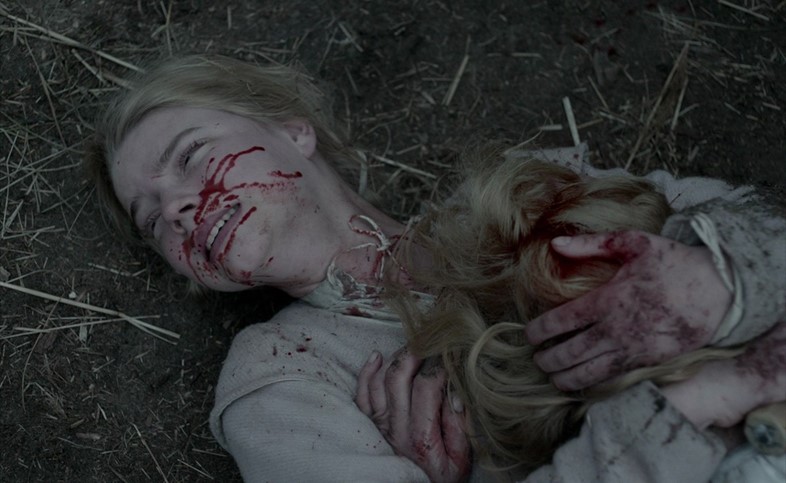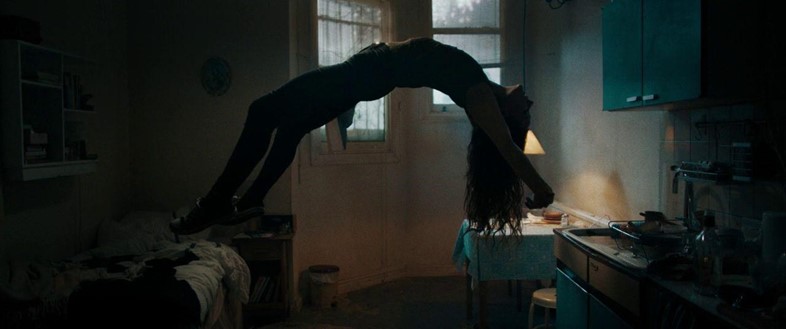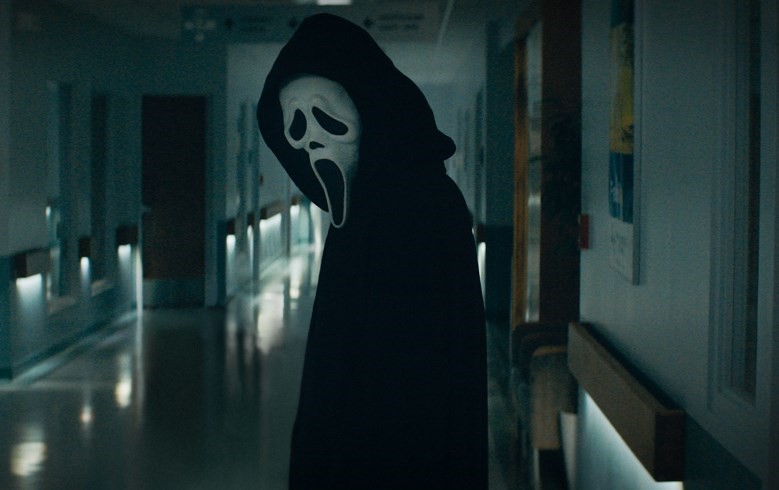Alex Denney surveys the horror genre over the past decade and wonders which is better: an intellectualised, ‘elevated horror’ like Get Out, or a classic slasher movie like the new Scream?
In the new Scream film, Ghostface asks a teen called Tara what her favourite scary movie is. Then, *extremely Adam Curtis voice*, something unexpected happens. Citing The Babadook – “an amazing meditation on motherhood and grief”, apparently – the girl rebuts Ghostface’s mocking suggestion that the movie sounds a bit “fancypants” by telling him it’s “elevated horror”. Ghostface is unimpressed, and responds as only he knows how – by stabbing up the place.
By now, many of us will be at least passingly familiar with the term ‘elevated horror’. As retrospectively applied to the likes of The Babadook, The Witch, Get Out and It Follows, the term describes a run of films beginning in the early 2010s that sparked a renaissance in horror filmmaking, irritating fans with its implied snooty disdain for the ‘rest’ of the genre. According to Tara, the elevated horror is “scary, but with complex emotional and thematic underpinnings,” which is actually a pretty good description of what these films are about. As well as displaying a range of arthouse tics – fastidious framing and art design; discordant, Penderecki-esque scores – elevated horrors are horror films that wear their subtexts on their sleeves. Do you want your scares to double as a subtly shaded allegory on Trump-era isolationism? May we suggest It Comes at Night, Trey Edward Shults’s apocalyptic home invasion thriller from 2017? Want a horror that’s a harrowing treatise on mental health and religious zealotry? Try Rose Glass’s recent entry into the genre, Saint Maud. If it’s an “amazing meditation on motherhood and grief” you’re after, you’re in luck – it’s virtually a genre unto itself (see also: dementia horror).
Why does Ghostface find these films so triggering? 26 years ago, Scream was the new noise on the horror-film block. Reviving a genre that had sunk into straight-to-video oblivion by the mid 90s, Wes Craven’s slasher equipped its characters with intimate knowledge of the genre, allowing its cast of would-be final girls and boys to survive by acknowledging that you don’t, for instance, go outside to check what that noise is, because past viewing experiences tell you the chances of you ever coming back are … slim. It was hip, but fundamentally the opposite of what “elevated horror” sets out to achieve, with its literary focus on psychological trauma and an enveloping atmosphere. Maybe Ghostface’s rage is a simple case of envy: he’s worried, like James Murphy before him, about losing his edge to a new gen of zeitgeisty horror.
Is there something deeper going on here? On the surface, the scene plays as exactly the sort of postmodern nudge-winkery for which the franchise became famous, calling back to the first film’s infamous opening scene. But in the touchy year of 2022, it also feels like shots fired in the ongoing culture wars, Ghostface’s violent opprobrium setting two schools of horror – one trashy and primarily focused on body-count; the other studied, cerebral, unmistakably metropolitan-elite – in opposition. It’s a promising thread the film sadly opts not to run with, the real villains eventually revealed as the sort of whining nerds that now dictate the future of multimillion-dollar Hollywood franchises in the form of ‘fan service’. Still, it’s a moment that lingers for long-term observers of the genre, and raises the question of whether we’ve now officially passed peak elevated horror.

If so, no one seems to have told A24, primo purveyors of the genre, who have three scary movies on their slate for 2022, including Jordan Peele’s apparently sci-fi-tinged latest film, Nope. But it’s also telling that Ari Aster and Robert Eggers, who between them hatched some of the indie production house’s biggest horror successes, have branched out into period drama (Disappointment Blvd.) and epic fantasy (The Northman) this year. It Follows director David Robert Mitchell tried the same trick in 2018 with Under the Silver Lake, but flubbed his lines. What’s more, last year’s crop of chin-stroking chillers was notably low-key for A24, which drew uncharacteristically middling reviews for False Positive, a straight-to-VOD flop in June, and Icelandic horror-drama Lamb, released in December.
There are other early, tentative signs that the end may be nigh for the elevated horror. As Tara explains, the genre’s calling card is a preoccupation with thematic depth over jump-scares – a noble intent, but at their worst, these films can feel overburdened with subtext, or even cynically produced to plug into the thinkpiece-industrial complex. The wave of Black horror (see also: Them, Candyman) unleashed by Get Out has more recently had some critics shifting in their seats about so-called “trauma porn” – Antebellum, a time-travelling plantation horror starring Janelle Monáe, was widely criticised for being at once exploitative and heavy-handed with the pious social commentary. Luca Guadagnino’s Suspiria was a tedious ladling of subtext over an original that had subliminal depths of its own, like having the York Notes read out loud in the commentary while you’re trying to watch the film. Even Jordan Peele’s Us, a commercial hit on a par with Get Out, felt like a mishmash of ideas in search of a streamlined narrative.

In the end, it’s quality that will determine the fate of the elevated horror – and most right-thinking horror fans will recognise that the last decade has been a golden age for scary movies. But in a genre that is all about the return of the repressed, there is something to be said for films that scare the shit out of you – and never mind the rest. John Carpenter’s The Thing, Tobe Hooper’s Texas Chainsaw Massacre and the original Suspiria are all works of elemental terror whose power is not diminished by the lack of an easy ‘hook’ – excuse the pun – to hang it on. Perhaps Tara should meditate on that the next time she picks up the phone to a serial killer.
